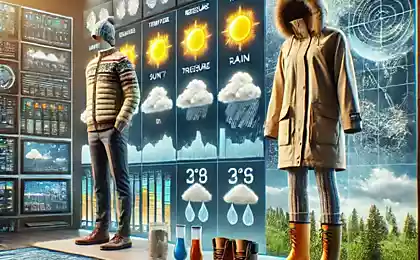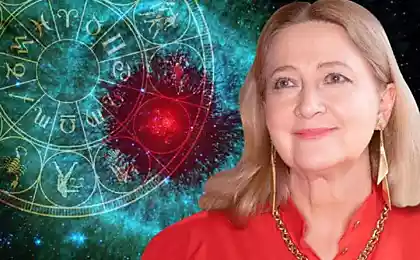1198
Forecast for the coming century

How will the world change in a century? Two promising British futurists, Ian Pearsen and Patrick Tucker, assessed on a 10-point scale the possible options for achieving human civilization. The deadline for the forecast is 2112.

Sovereign states will disappear, replaced by a world government.
Ian Pearsen: Nice try, but hardly. On the contrary, the number of nation-states will increase. In the near future, wealthy citizens and wealthy corporations will seek to buy up areas of the world’s oceans to create their own island states in international waters.
Patrick Tucker: Probability 2 out of 10.
Thanks to the achievements of genetics, we will be able to create people with the highest level of intelligence, who have immortality.
IP: 9 out of 10 probability. Direct communication of the brain with the computer will give people immortality in the practical sense of the word, but genetic modification will lead to a significant extension of life until electronic immortality becomes available to everyone at a similar price.
PT: It's quite possible. The idea that scientific breakthroughs in genetics, biotechnology and the development of artificial intelligence will expand the boundaries of the human mind and allow our species to largely overcome death is sometimes called a singularity.
California will be the first state to leave the United States.
IP: Probability 8 out of 10. Already, there are signs that California will seek a state exit, a trend that could intensify by the end of the century. At the heart of this phenomenon is a huge difference in wealth between states and in the reluctance of residents of richer states to fund poorer neighborhoods.
A single world currency will be introduced
IP: Probability 8 out of 10. We are already seeing electronic money being used everywhere, and this trend is set to continue. It is possible that by the middle of this century there will be only a few regional physical currencies, plus a global electronic currency. By the end of the century, it will be the only one.
TP: Hardly. In fact, the trend in this area is in reverse. The Internet makes possible new forms of exchange of goods and services. The number of different types of currency will increase.
Antarctica will lose its protected area status
IP: Probability 8 out of 10. The temptation to use this protected continent for the extraction of mineral resources will be too strong. Humanity will do this under the condition of strict observance of environmental standards.
PT: It's quite possible. But even before that, we will witness the development of the Arctic. In the coming decades, the struggle for control of the Arctic’s natural resources will be a major political challenge for the Nordic countries and humanity. If successful, it will be Antarctica’s turn.
Direct communication between human brain and computer
IP: 10 out of 10. For many, this will become a reality by 2050. By 2075, most people in developed countries will use some form of computer-assisted brain function.
There will be thousands of farms operating in the oceans that will produce food on an unprecedented scale.
IP: 10 out of 10. We have to feed 10 billion people, and the planet doesn't have the resources to do that. On such ocean farms will be grown not only fish, but also algae that will be used for food and fuel.
PT: It's quite possible. According to Denis Bushnell, a leading specialist at NASA’s Langley Research Center, seaweed, which will be genetically modified to absorb large amounts of nitrogen from the atmosphere, will release up to 68% of the fresh water that humanity currently spends on agriculture.
Distance transmission will become a reality
IP: 10 out of 10. Telepathy will become one of the usual forms of increasing brain function. Perceiving thoughts and transmitting them over a distance will become as common as storing thoughts in computer networks.
PT: It's quite possible. Artificial telepathy now seems fantastic, but it is quite real if the transmission of thoughts is understood as the transmission of electrical signals of the brain.
We will learn to control the weather completely.
IP: Probability 8 out of 10. There are already ways to fight tornadoes or cause rain. Thanks to the study of climate in recent years due to fears of global warming, we are increasingly aware of the mechanisms of influence on weather. It is possible that new methods of such exposure will be too expensive for everyday use and will be resorted to only in critical circumstances.
PT: It's quite possible. Such attempts are inevitable. Most American scientists support a federal program to study methods of intervention in the climate of our planet. These geoengineering technologies are designed to neutralize the human impact on the climate.
Nanorobots will circulate through our circulatory system, repairing cells and recording our thoughts
IP: Probability 7 out of 10.
PT: It's quite possible. So far, medical nanorobots exist only in theory, but research in this area is developing very actively.
Thermonuclear fusion will become a reality
IP: 10 out of 10. Thermonuclear power plants are likely to appear by 2045-2050, and probably by 2100. Whether they will become the main source of energy for humanity is still unclear. It is likely that this place will claim huge solar collectors and shale gas production.
There will be only three languages left in the world – English, Spanish and Chinese.
IP: Probability 8 out of 10. Many languages are in crisis and are slowly dying, while others face competition from foreign languages. This process could be completed within a century.
Same-sex marriage will be accepted in most countries
IP: Probability 8 out of 10. In Western countries, this is inevitable. In other countries, the process will be slower due to religious restrictions.
Space elevator will make space accessible to everyone
IP: Probability 8 out of 10. The first space lifts will appear by the middle of the century and will be much cheaper than conventional methods of entering outer space. This will accelerate space exploration and the development of space tourism, although I doubt the cost of using them will be massively affordable for people.
Artificial insemination will completely replace natural
PT: Not far from the truth. Already, more and more people are using new methods of fertilization. Genetic analysis and selection of fertilized embryos are increasingly used in specialized clinics. Embryo scans can already identify about half of known genetic diseases. And in the next ten years, scientists will be able to select almost 100% of full-fledged embryos.
IP: The probability is 5 out of 10.
The natural habitat of humans and animals will be destroyed, and it will be replaced by reserves and museums.
PT: Not far from the truth. Our planet is on the verge of significant species extinction. Protecting biodiversity in an era of increasing resource consumption, overpopulation, and environmental degradation will require sacrifices, and can often come at the expense of local, often poor, peoples. Experts believe that the inclusion of the economic interests of residents of a number of districts in the fight for environmental preservation should become an essential part of the environmental protection strategy.
IP: Probability 2 out of 10.
Deserts will become tropical forests
IP: Probability 7 out of 10. Desert control techniques are improving and can bring success.
Marriage will be replaced by annual contracts
IP: Probability 6 out of 10. Habitual forms of marriage will give way to less obligatory ones, which are designed for a certain period of time, and not for a lifetime. With increasing life expectancy, this is inevitable – if you expect to live 100 years, it is unlikely that at 20 you should marry before the coffin.
























